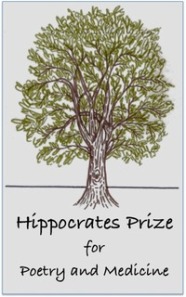Jane Kenyon
(1947 – 1995)Three Songs At The End Of Summer
A second crop of hay lies cut
and turned. Five gleaming crows
search and peck between the rows.
They make a low, companionable squawk,
and like midwives and undertakers
possess a weird authority.Crickets leap from the stubble,
parting before me like the Red Sea.
The garden sprawls and spoils.Across the lake the campers have learned
to water ski. They have, or they haven’t.
Sounds of the instructor’s megaphone
suffuse the hazy air. “Relax! Relax!”Cloud shadows rush over drying hay,
fences, dusty lane, and railroad ravine.
The first yellowing fronds of goldenrod
brighten the margins of the woods.Schoolbooks, carpools, pleated skirts;
water, silver-still, and a vee of geese.*
The cicada’s dry monotony breaks
over me. The days are bright
and free, bright and free.Then why did I cry today
for an hour, with my whole
body, the way babies cry?*
A white, indifferent morning sky,
and a crow, hectoring from its nest
high in the hemlock, a nest as big
as a laundry basket …
In my childhood
I stood under a dripping oak,
while autumnal fog eddied around my feet,
waiting for the school bus
with a dread that took my breath away.The damp dirt road gave off
this same complex organic scent.I had the new books—words, numbers,
and operations with numbers I did not
comprehend—and crayons, unspoiled
by use, in a blue canvas satchel
with red leather straps.Spruce, inadequate, and alien
I stood at the side of the road.
It was the only life I had.“Three Songs at the End of Summer” by Jane Kenyon, from Otherwise. © Graywolf Press, 1997.
–
Richard Hugo
(1923-1982)Degrees Of Gray In Philipsburg
You might come here Sunday on a whim.
Say your life broke down. The last good kiss
you had was years ago. You walk these streets
laid out by the insane, past hotels
that didn’t last, bars that did, the tortured try
of local drivers to accelerate their lives.
Only churches are kept up. The jail
turned 70 this year. The only prisoner
is always in, not knowing what he’s done.The principal supporting business now
is rage. Hatred of the various grays
the mountain sends, hatred of the mill,
The Silver Bill repeal, the best liked girls
who leave each year for Butte. One good
restaurant and bars can’t wipe the boredom out.
The 1907 boom, eight going silver mines,
a dance floor built on springs–
all memory resolves itself in gaze,
in panoramic green you know the cattle eat
or two stacks high above the town,
two dead kilns, the huge mill in collapse
for fifty years that won’t fall finally down.Isn’t this your life? That ancient kiss
still burning out your eyes? Isn’t this defeat
so accurate, the church bell simply seems
a pure announcement: ring and no one comes?
Don’t empty houses ring? Are magnesium
and scorn sufficient to support a town,
not just Philipsburg, but towns
of towering blondes, good jazz and booze
the world will never let you have
until the town you came from dies inside?Say no to yourself. The old man, twenty
when the jail was built, still laughs
although his lips collapse. Someday soon,
he says, I’ll go to sleep and not wake up.
You tell him no. You’re talking to yourself.
The car that brought you here still runs.
The money you buy lunch with,
no matter where it’s mined, is silver
and the girl who serves your food
is slender and her red hair lights the wall.“Degrees of Gray in Philipsburg” from Making Certain It Goes On: The Collected Poems of Richard Hugo. Copyright © 1984 by Richard Hugo.

